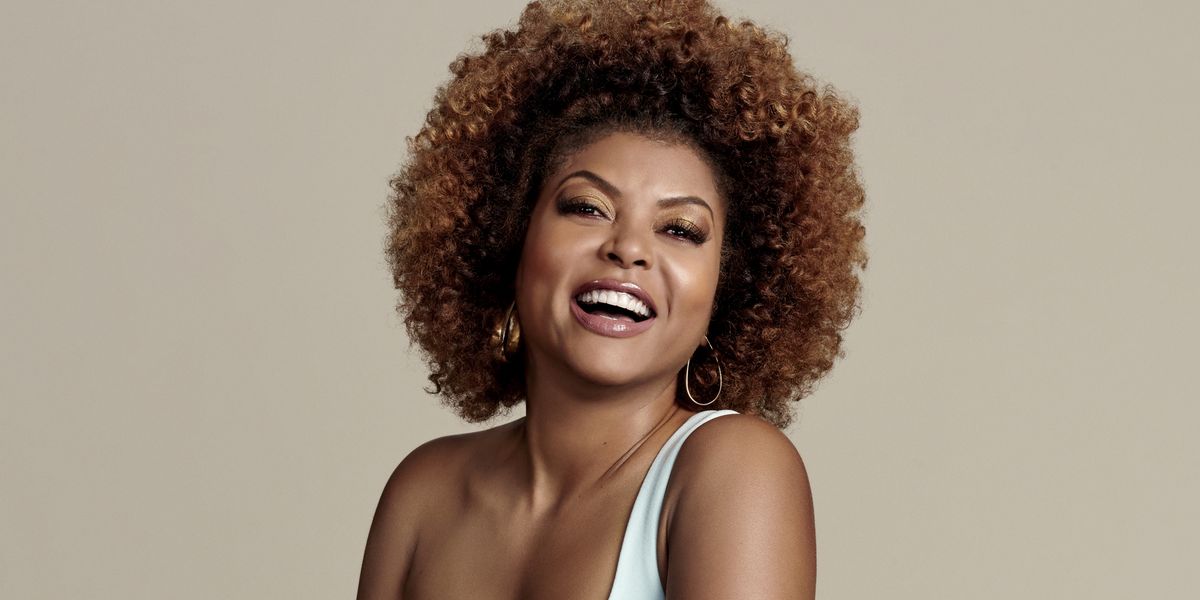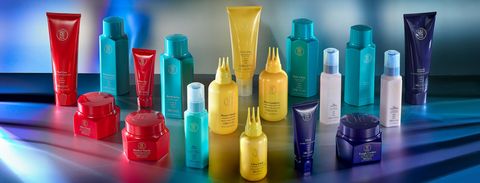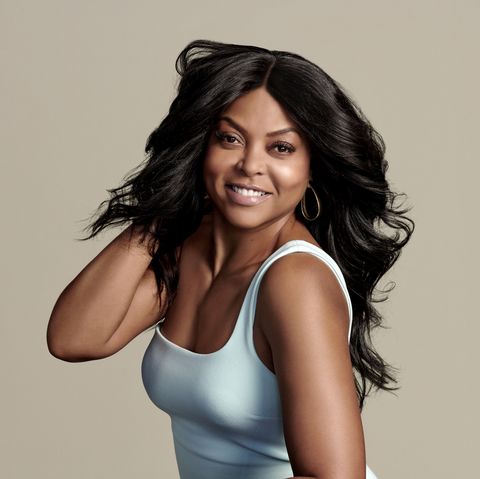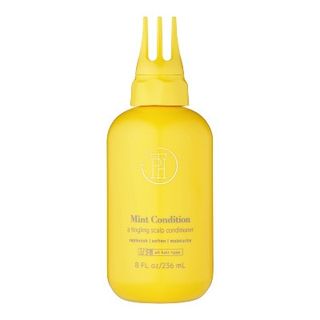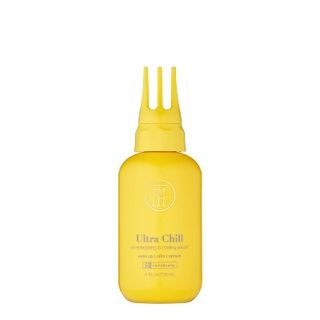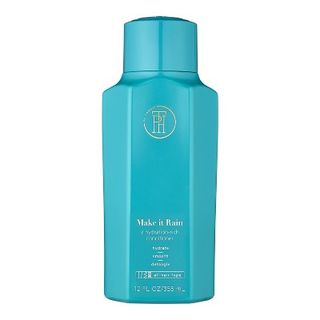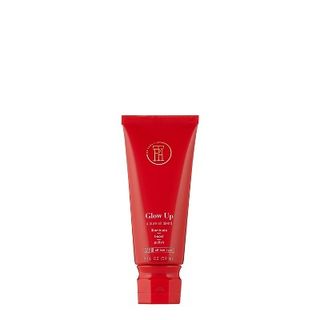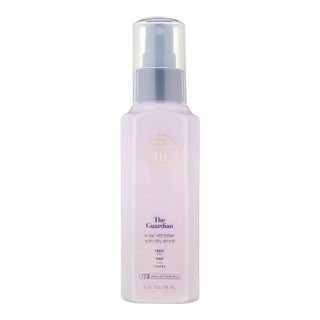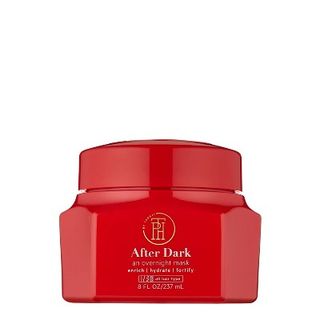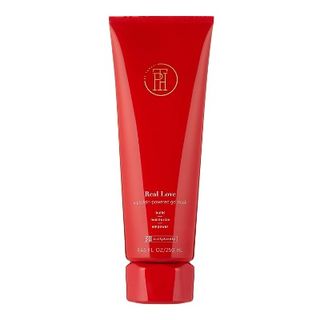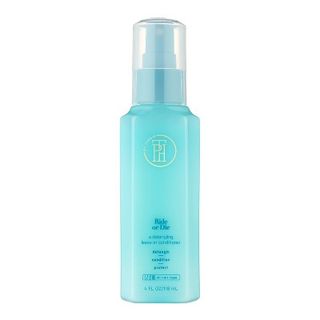A general rule of thumb when it comes to black hair is to never—I mean, never—touch another woman’s hair. So you can imagine the audible gasp a quaint SoHo pop-up space filled with beauty editors let out when a few fiending, curious hands plunged into Taraji P Henson’s honey-blonde-tinged curls at her Hair Dare University event on a recent Friday afternoon—at the direction of Henson, of course. “I know, I know, but just feeeel how soft [my hair] is,” Henson says walking around, her voice slipping into an enthusiastic high pitch as she tries to convince the crowd that she’s okay with it. Curious about what, exactly? Well, the actress, author, and everyone’s best-friend-in-their-head launched her hair care line TPH by Taraji, and she wanted everyone to feel—up close and personal—the results of the new products.
“Every human, boy, girl, adolescent, and adult should have the opportunity to experience beautiful, healthy hair—and it starts from the scalp,” Henson tells ELLE.com. “TPH by Taraji isn’t just for natural hair; my sole purpose was to create a foundation for everyone but also provide products that allow you to branch off to the different groups that cater to your specific needs.”
She’s quick to admit she’s no scientist, but the formulation of TPH says otherwise. Like getting a relaxer or convincing your parents to finally let you add brown highlights, whipping up on your cocktail of itch-reducing, softening, and moisturizing oils and creams marks another rite of passage for Black women—and for Henson, the beginning of what would later be known as TPH by Taraji.
“The way I did it was kind of backward,” explains Henson. Her scalp was itchy so she added Sea Breeze oil to her hair but realized the alcohol in it was drying her scalp out. To combat the dryness, Henson added tea tree oil and began researching which natural remedies pair best together. From her experimentation, a concoction was born. “It got to the point where I started using it on my girlfriends, and they said, ‘Oh my God, this feels amazing,’” adds Henson. “I knew that it was time to take this somewhere.”
That place was Target, where TPH by Taraji will be sold exclusively in-store and online starting today, January 29. Wrapped in four different colors, TPH by Taraji is also broken into four different categories that address a slew of hair benefits—scalp care (yellow), cleanse (blue), repair (red), and treatment stylers (purple)—inspired by her own hair journey and the damage caused by wearing too many weaves and wigs over the years. And with TPH, Taraji hopes to keep people’s hair clean and help them “tend to their soil.”
Ahead, Taraji B. Henson opens about her hair journey, how model Slick Woods inspired her big chop, and why scalp care is so crucial.
What was your earliest memory of hair?
Remember during Prince’s “Purple Rain” phase, when he had the curls that went into the middle of his head on both sides? When I was younger, I cut my hair like that, and my mother got so mad because I didn’t consult her. She told me, “You’re going to have to do your own hair, ain’t nobody be trying to figure out how to do this hair cut,” and I was like, “That’s okay, Mom, I got it.” And I had it; I actually had a little money because I always kept a job. I went to Sally’s, and I go a stove for my Marcel iron. I started click-clacking away in ninth grade. By college, I was doing wet sets with Lotta Body—I had a hooded dryer.
A little secret about me is that if I didn’t go into acting, I would have gone into cosmetology. But I missed the school by a year. I think that was just God intervening.
What was your hair journey like?
I never liked my natural hair because I wasn’t taught to like it. When I grew up, it felt like the only option was perming my hair. I was getting my hair permed from the age of six. Plus, I’m tender-headed, so it was all too much.
I remember while I was in LA, maybe five or six years go, I was sitting in a stylist’s chair, and I mentioned I needed a touch up so bad. She looked at my roots and said, “No, you don’t, and why are you getting a perm?” The stylist talked me out of getting a perm. After that, I grew out my perm and starting pressing my hair. That caused major breakage and weakened by edges. I got sick of that, and that’s why I just finally did the big chop. I chopped my hair because I wanted to relish in my natural hair.
Which is how TPH came to fruition. When did you realize TPH by Taraji was the right move?
It was birthed out of a necessity. I was wearing a weave and was new to weaving but I wanted to take care of my hair, whether it was in braids or any kind of protective hairstyle. I was wasting money trying to protect my hair with weaves and wigs but only kept them in for a short time. When it came time to take down the weaves, there would be a bunch of gunk and build-up and I knew there had to be an easier, better way to get into the scalp. After using it on my friends and hearing them say things like, “Oh my God, I’ve never experienced anything like this,” a light bulb went off. I knew there was a market for this since no one was directly dealing with scalp care.
As a protective style enthusiast yourself, what TPH products would work best?
Remember you’ve got to continue to care for your scalp even under weaves. So, if you have locs or braids or twists, you want to put the Ultra Chill Serum. That’s a serum that has a cooling relief. When you have braids and you’ve been itching it like crazy, you need to relieve your scalp.
Now, say your hair is dry and dehydrated, what would you recommend?
I would use The Guardian, it’s a spray. You can also use Ride or Die, which is a leave-in conditioner. After Dark is a great one too, which is a night mask because I know for me, my hair gets very dry especially now that I have blonde on my ends, it’s very dry. I put the After Dark in it overnight because it has moisture in it.
What inspired your big chop?
I felt so empowered. I remember I got scared when I first did it because I was known for the bob. I was doing Proud Mary at the time, and I looked in the mirror, and I was like, “What the fuck did I just do?” I ended up on Instagram and I came across the model Slick Woods, who rocks a shaved head all the time. She was confident and inspired me to own my hair cut. When I finally saw her, I told her how she literally helped me love my chop.
What do you think led to you feeling content with your hair?
Seeing other women embrace their own hair. When I was growing up, it wasn’t cool to have curly hair; curly hair was considered nasty or kinky and it wasn’t cool. That’s why representation is everything. Now you can turn on the TV and a Black woman with straight hair is hard to come by. It feels like in every commercial a black women has natural hair. Have you been paying attention?
